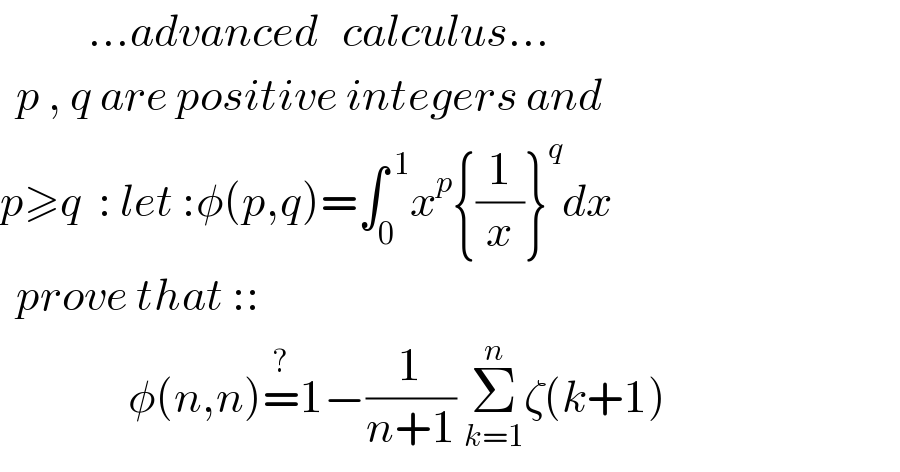
Question and Answers Forum
Previous in Relation and Functions Next in Relation and Functions
Question Number 124102 by mnjuly1970 last updated on 30/Nov/20

| ||
Question and Answers Forum | ||
Previous in Relation and Functions Next in Relation and Functions | ||
Question Number 124102 by mnjuly1970 last updated on 30/Nov/20 | ||
 | ||